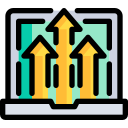
Thriving While Adapting to the Digital Workforce Landscape
Chosen theme: Adapting to the Digital Workforce Landscape. Welcome to your practical, people-first guide for navigating new tools, new norms, and new opportunities—without losing your team’s soul, creativity, or momentum.
Reading the Map: What the Digital Workforce Really Looks Like
The shift from office-bound schedules to outcomes-based performance changes how teams plan, communicate, and celebrate progress. Fewer status meetings, more shared dashboards, clear goals, and visible milestones help people focus on impact rather than appearances.

Building Your Digital Stack With Purpose
Fewer Tools, Deeper Rituals
Consolidate chat, docs, and tasks where possible. Create simple rituals: a daily async check-in, a weekly demo reel, and a monthly retrospective note. The right habits turn any platform into a powerful, shared operating system.



Reskilling for the Future: Skills Over Titles
Encourage breadth plus depth: a marketer who prototypes, an engineer who storytells, a designer who queries data. Cross-pollinated skills reduce handoffs, spark empathy, and keep projects moving when constraints inevitably appear.
Reskilling for the Future: Skills Over Titles
Swap marathon trainings for ten-minute challenges, paired practice, and peer feedback. Celebrate applied wins—one improved query, a cleaner brief, a clearer pull request. Momentum grows when learning is visible, social, and immediately useful.
Leading Distributed Teams With Clarity and Care
Leaders who document strategy, decisions, and tradeoffs help everyone move faster. Then they reinforce the message live, invite questions, and acknowledge uncertainty. Written clarity plus human warmth beats slides every time.
Leading Distributed Teams With Clarity and Care
Team agreements—response-time norms, meeting-free blocks, communication channels—reduce friction. When expectations are explicit, people plan their days without guilt, protect deep work, and collaborate more generously across time zones.

Boundaries, Energy, and Sustainable Performance
Bundle meetings, schedule true focus blocks, and set clear sign-off rituals. Leaders should model healthy norms—no heroics, no midnight pings, and explicit encouragement to pause when energy dips or deadlines shift.
Prompt Literacy Is the New Power Skill
Teach framing: audience, tone, constraints, and success criteria. Save effective prompts in a shared library. When teams iterate together, AI output improves dramatically, and people spend more time on insight and narrative.
Guardrails for Accuracy and Ethics
Establish review steps for sensitive outputs, cite sources, and mark AI-assisted content. Clarity about when and how AI is used builds trust with customers and strengthens internal accountability across projects.
A Practical Win You Can Replicate
One support team used AI to summarize long tickets into crisp briefs for engineers. Resolution time dropped, empathy rose, and customers noticed. The secret? Humans verified summaries and added context only experience provides.






